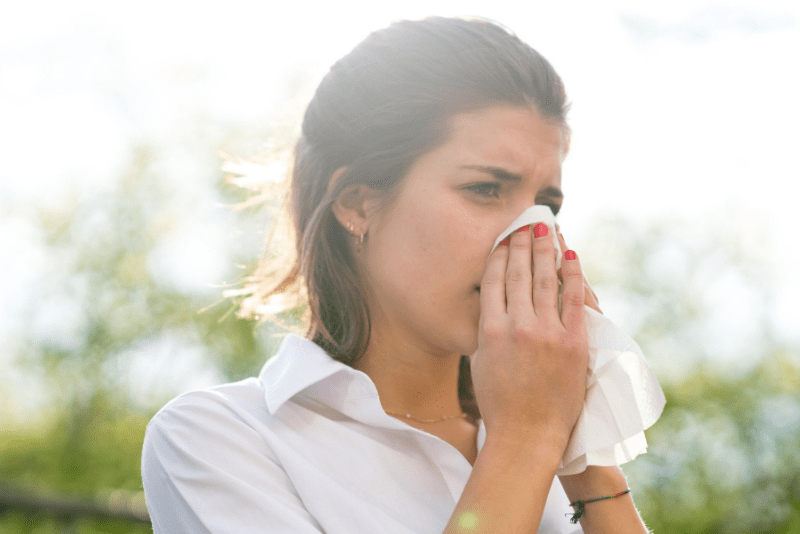There’s nothing quite like Charleston in the fall. In contrast to the hot and humid summer, most of us welcome the perfect balance of sun and comfortable temperatures, which make it an ideal time to enjoy the great outdoors.
However, this beautiful season isn’t completely free of downsides. Charleston is notorious for bringing on fierce fall allergies of all sorts. What are some allergens that are especially prevalent here in the fall? More importantly, how can you manage them effectively so that you can still enjoy the season to the max?
Allergens Common in the Fall
Along with year-round allergies that are found here in the Lowcountry, many are also affected by some allergies that are more prominent in the fall. Some of the most common culprits for seasonal allergies this time of year include:
Ragweed. Did you know that each ragweed plant produces 1 billion pollen grains that can travel hundreds of miles? Although not as obvious as its bright yellow counterparts, this form of pollen is everywhere in fall! An allergy to ragweed pollen can result in symptoms such as sneezing, runny nose, irritated eyes, a scratchy throat and more.
Alternaria alternata. Or, in simpler terms, mold, is a year-round issue here in the Lowcountry. In the fall, it grows on leaves thanks to the warmth and humidity. These mold spores, which can be easily disturbed, can cause headaches, coughing, fatigue and even skin rashes. And this is just one type of mold; there are many more (both indoors and out) that can produce similar symptoms.
Dust mites. While not limited to the fall season, dust mites love warmth and humidity. As a result, they thrive in late summer and into early fall, leading to sneezing, itchy and watery eyes, sinus pressure and itchy skin.
Pollen food syndrome. Some who have allergies to ragweed and other pollens, like birch trees, may notice they have reactions when eating certain seasonal foods. These can include cucumbers, zucchini, melons, bananas, apples, pumpkins and squash. In this case, the pollen cross pollenates with certain fruits and vegetables which can cause allergic reactions such as an itchy or tingly mouth when consumed. This is not a true food allergy but an allergic response to inhalant allergies.
Treating Fall Allergies Successfully
You shouldn’t have to miss out on enjoying the fall in the Lowcountry simply because you have allergies. There are things you can do to reduce and manage your symptoms. You can:
– Try over-the-counter medications to combat sneezing, runny nose, throat irritation and other symptoms.
– Wear masks when performing certain outdoor activities such as raking leaves or other yard chores to protect yourself from pollen and other allergens in the air.
– Use a dehumidifier to reduce the humidity in your home, which can minimize the prevalence of dust mites.
– Keep doors and windows closed to prevent mold and pollen spores from entering, along with showering as soon as you get home to reduce the spread of allergens.
– Pay us a visit so that we can find the cause of your allergies with an allergy test and put together a personalized treatment plan. Such a plan may include avoidance measures, medications or even allergy immunotherapy, which can help you permanently increase your tolerance to allergens.
If you’re a fall allergy sufferer, take action now so that you can enjoy the season while there’s still time!




